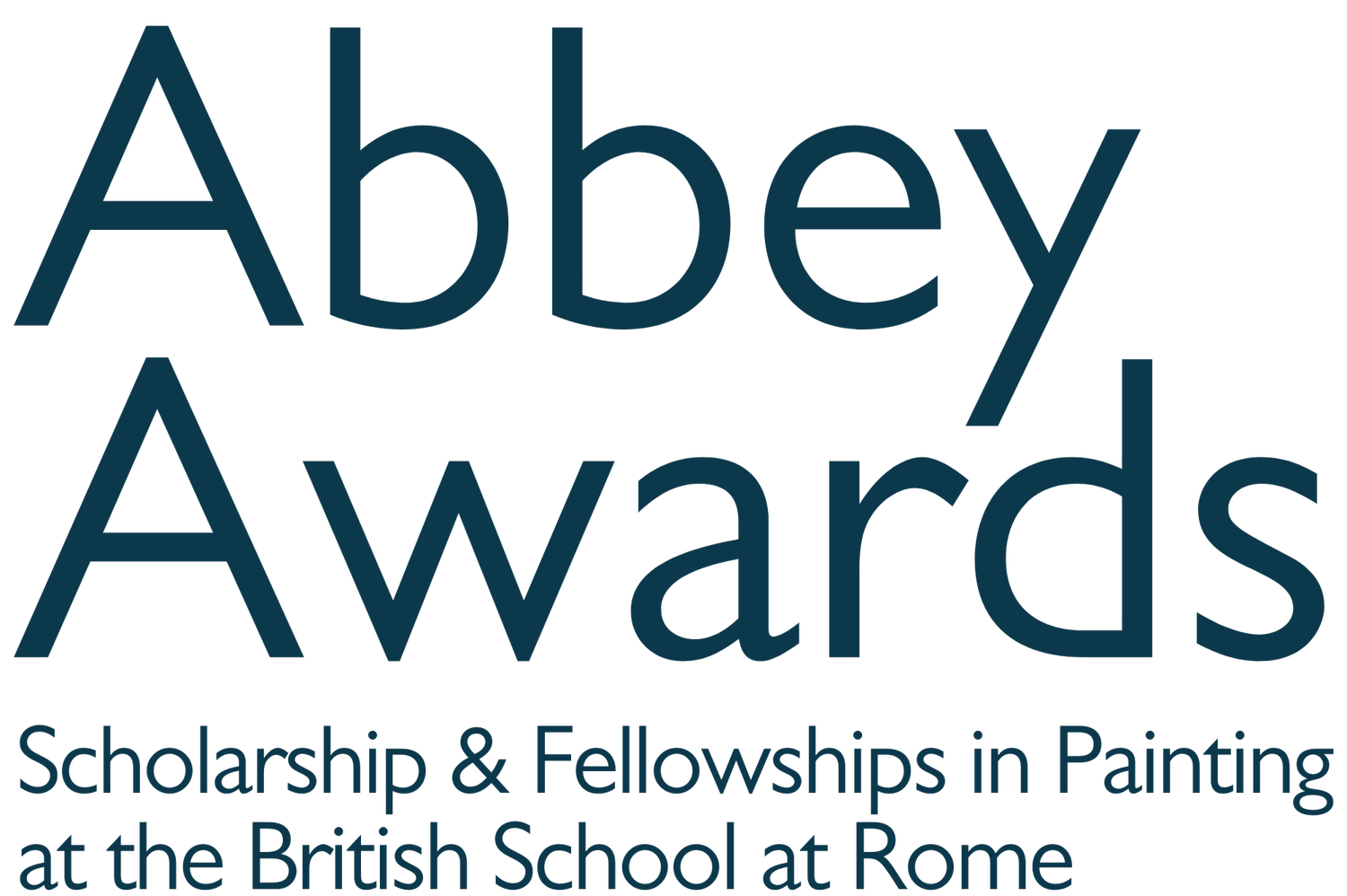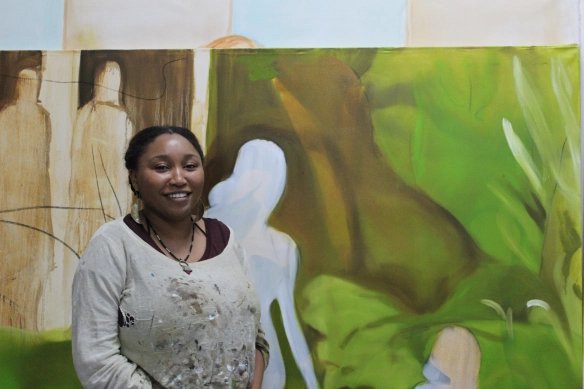
Sikelela Owen, Abbey Fellow 2019
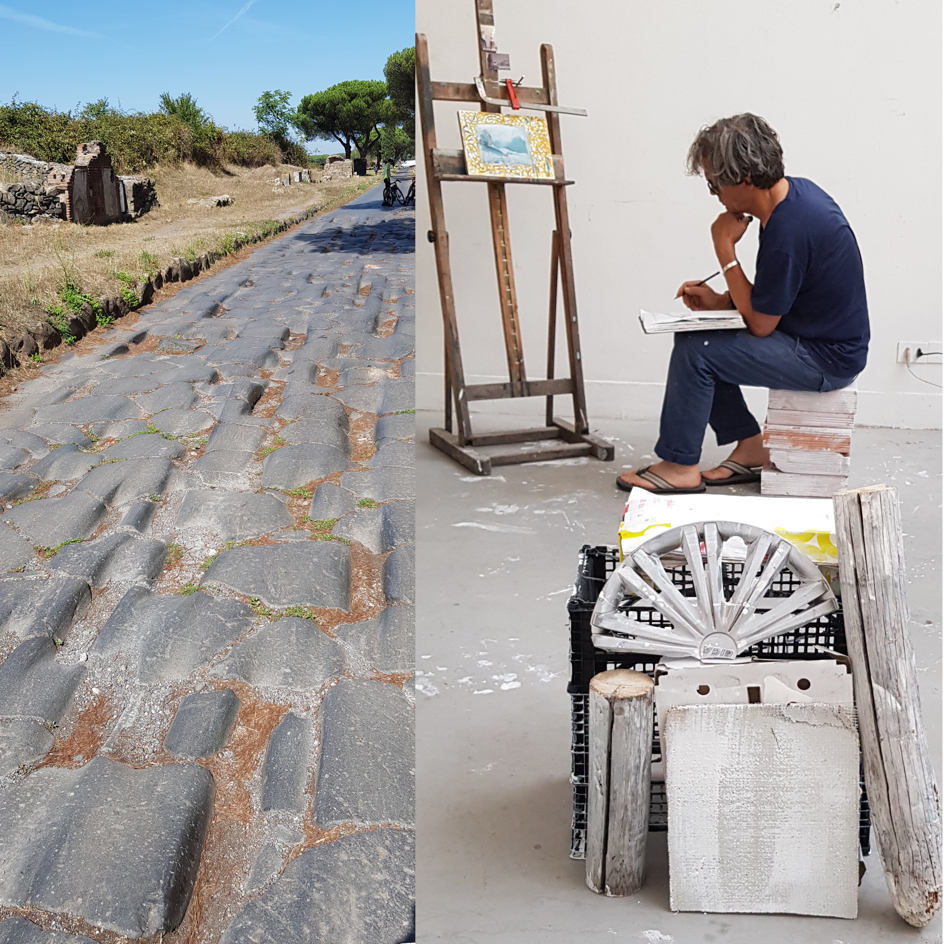
Jeffrey Dennis, Abbey Fellow 2021, via Appia, Rome
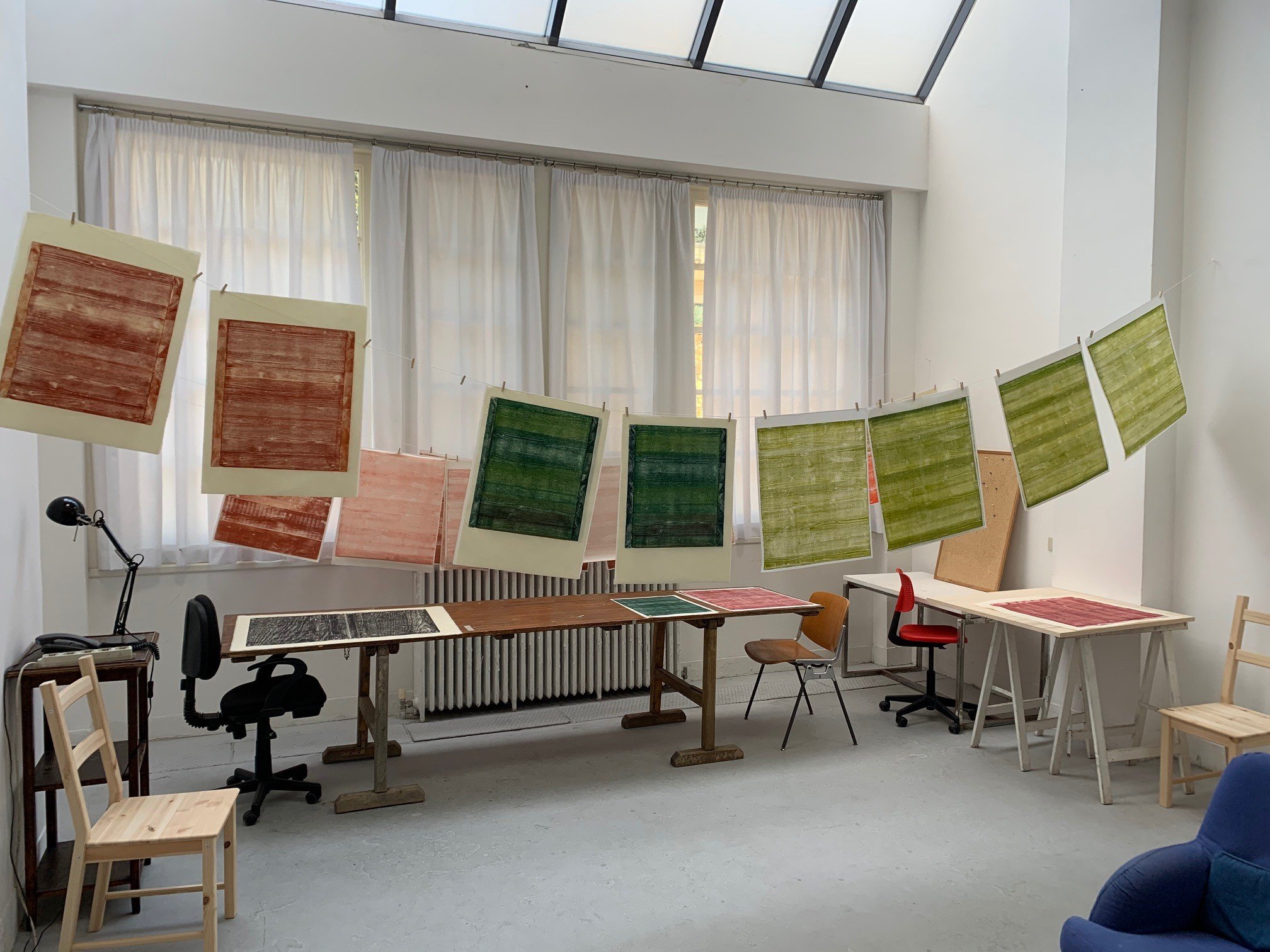
Jeff McMillan, Abbey Fellow 2020, woodblock prints (test)

Simon Callery, Abbey Fellow 2018
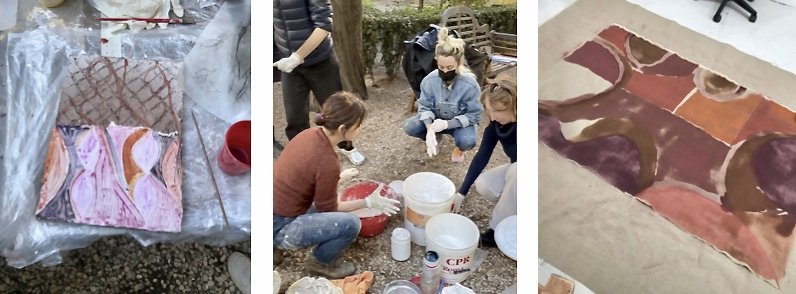
Fresco Workshop at the BSR, Margaux Ogden, Abbey Fellow 2021
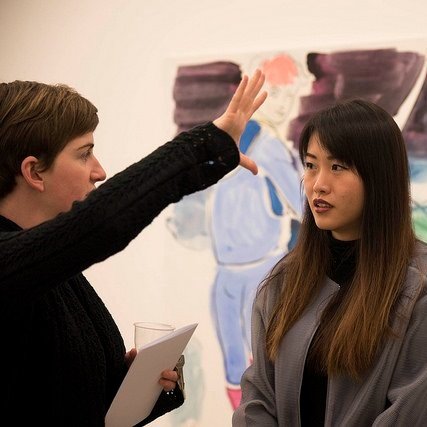
Vivien Zhang, Abbey Scholar 2017
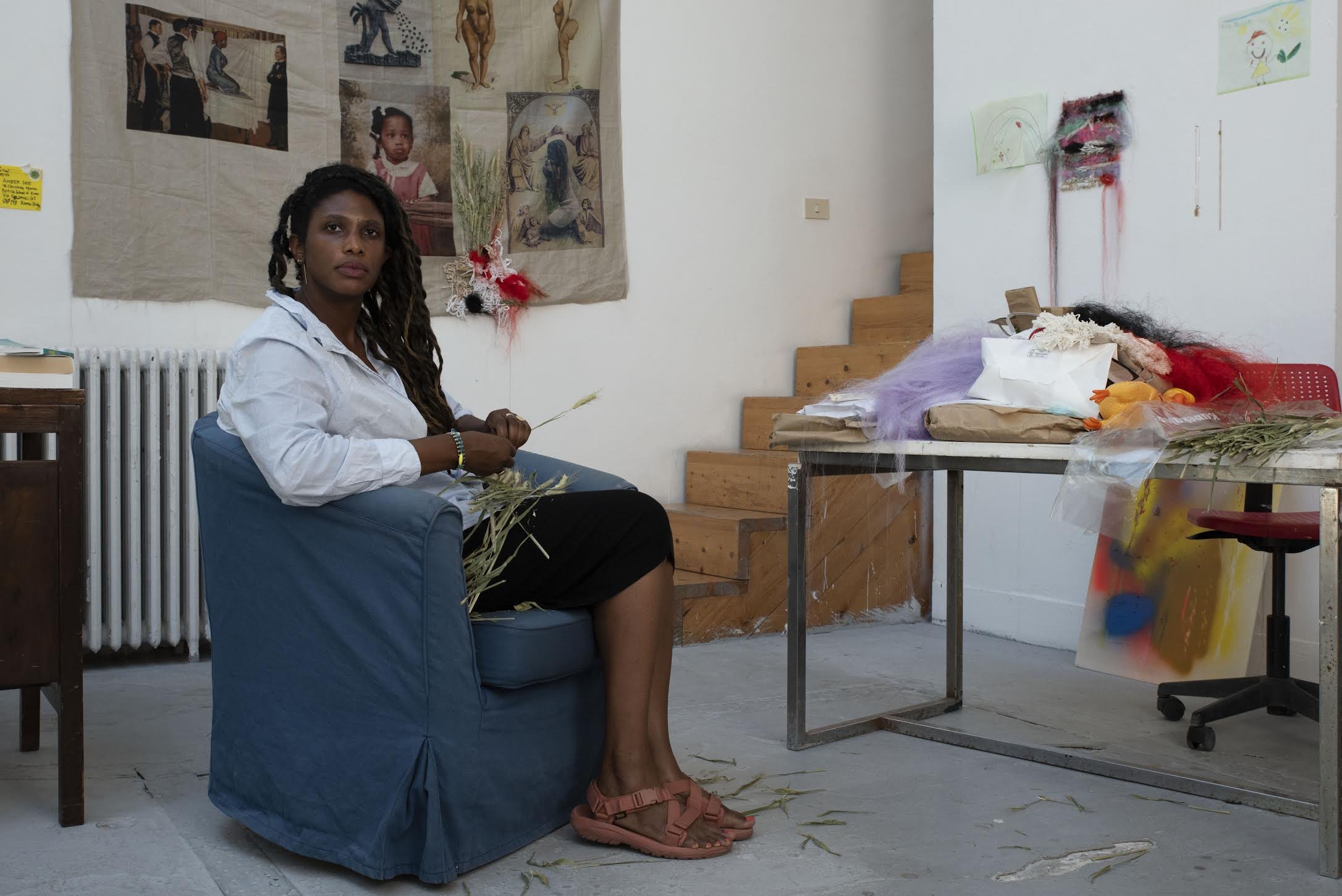
Amber Doe, Abbey Fellow 2021
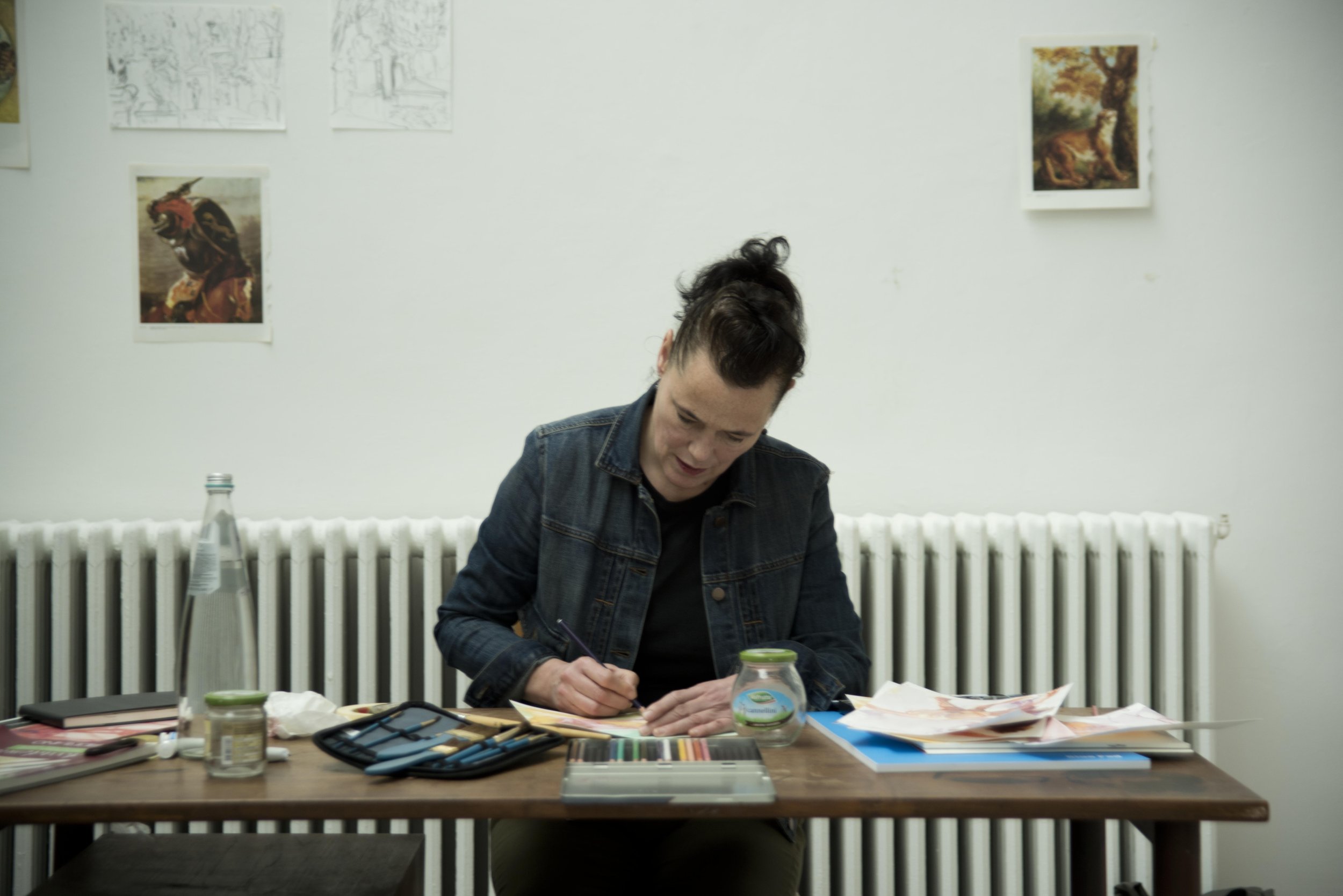
Anne Ryan, Abbey Fellow 2016 and Abbey Council Member appointed 2019
Abbey Awards offers residencies for painters at the British School at Rome. Artists are selected from an annual submission, open to UK and US citizens and residents.
An Abbey Award allows artists the opportunity to focus on their practice, free from everyday pressures and distractions, with accommodation,
meals and stipends all provided. Abbey Fellows and Scholars live and work within the BSR’s vibrant international research community, in the most fascinating city of the ancient and modern world.
The residencies offer accommodation in studio live/work ateliers, within a community of independent researchers and practitioners in the fields of Fine Art, Archaeology, Architecture, the Humanities and Social Sciences.
Abbey Fellowships are 3 month residencies with a stipend of £1500 per month. The Abbey Scholarship is a residency of 9 months and Scholars receive a stipend of £1250 per month. Three Fellows and one Scholar are selected annually.
More information and images of current Abbey Fellows and Scholars, and a list of alumni dating back to 1950 is available here
Applications for 2026/2027 are now closed.
Equality, Diversity and Inclusion
The BSR seeks to be a place where all are welcome regardless of their identity or background, and where all can thrive in an inclusive environment that values and celebrates diversity. We would particularly welcome applications from candidates from groups currently underrepresented at the BSR. See our Equal Opportunities policy for further details.
-
Candidates apply for either a Fellowship or Scholarship. Abbey Fellowships are opportunities for mid-career artists who may be established in their work and practice. The duration of the Fellowship is 3 months, with a monthly stipend of £1500. The Scholarship is a longer residency of 9 months for emerging artists at an earlier career stage, with a monthly stipend of £1250.
-
Although the awards are aimed at artists whose main practice is painting, the definition of painting is understood to include the ‘expanded field’; artists whose practice incorporates sculpture, performance, textiles etc. have successfully applied.
-
Abbey Awards are open to UK and US citizens and long-term residents (resident for a consecutive 5 of the last 10 years). There is no age limit.
The Application Fee is £25/US equivalent. We now operate a Fee Waiver for applicants in receipt of certain means tested benefits. Please consult the Application Guidelines and Forms below.
We ask for 8 images of recent work, plus the completed Application Form and Equal Opportunities Monitoring Form, to be sent via We Transfer to apply@abbey.org.uk
Extra funding for Abbey Awardees
-
Artist Jules de Goede was born in Rotterdam, emigrated with his family to Australia and returned to live and work in London until his death in 2007. His legacy to Abbey Awards allows us to offer all Fellows a £300 grant towards materials and travel. The Jules de Goede Fund is a fitting memorial to a generous artist and gentle man.
“A reflection of the world as it appears is not enough. It is what things could be that matter. Abstraction should bring another kind of reality. I try to show what is invisible. I try to create happiness out of unsatisfactory situations. to make the impossible seem possible. I try to create order out of chaos. I try to bring conclusions rather than ask questions. Art is where there is no question.” Jules de Goede, 1937-2007.
-
Rosa Lee (1957–2009) was an influential artist and feminist who was a member of the Abbey Council up until her death in 2009. A grant of an extra £100 is made to all Scholars, in her memory, for travel within Italy. Sacha Craddock, fellow Abbey Council member and friend, talks about Rosa’s work in a film made for the Richard Saltoun Gallery available to view here (courtesy Saltoun Gallery).
"The positive aspect of post-modernism lies in the fact that there is no longer a hierarchy of practices or ideas, similarly, there is also a widening out of contexts which denies the dogmatism of a single 'correct' viewpoint. For feminists these insights are not new. Indeed it could be said that the crisis of authority symptomatic of postmodernism has itself been instigated by feminist intervention within cultural practice..."
Rosa Lee: Resisting Amnesia: Feminism, Painting and Postmodernism (1987, Feminist Review)
